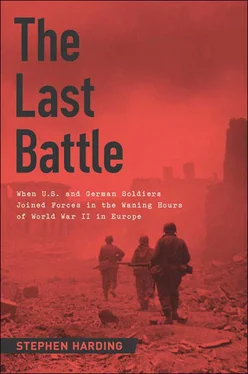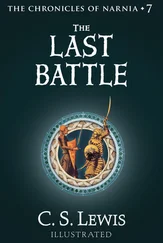While de La Rocque remained politically active in Vichy, his increasing ambivalence about the regime trumped his respect for Pétain. Moreover, de La Rocque’s belief that Germany was France’s “ancestral enemy,” [107] 22. He used the term in his 1941 volume Disciplines d’Action , 12.
coupled with his distaste for the Nazis, led him to be outspoken about his opposition to collaboration, and even before the Germans’ November 1942 takeover of unoccupied France, de La Rocque had openly declared “no collaboration under the occupation.” [108] 23. Nobécourt, Le colonel de La Rocque , 777.
Given de La Rocque’s dislike of Germany and less than wholehearted support for Vichy—and his politically savvy preference for keeping his options open—it’s no surprise that he established a clandestine relationship with the Allied intelligence services. While some sources [109] 24. Notably Jacques Nobécourt.
indicate that he first began gathering information of potential value to the Allies in the summer of 1940, it was not until February 1942 that de La Rocque established contact with the Madrid-based Réseau Alibi, or Alibi Network, which had agents throughout France and reported directly to Britain’s Secret Intelligence Service (SIS).
De La Rocque formalized the ad hoc intelligence-gathering effort he’d been leading and transformed it into an Alibi subnetwork known as the Réseau Klan (Klan Network), which used the PSF’s social-services operations as a cover for intelligence gathering. While the extent and value of the information provided to the SIS by the Klan Network remains difficult to judge, there is no doubt that de La Rocque—a man maligned both during and after the war as a fascist collaborator—knowingly endangered himself, his family, and his followers to pass intelligence to the Allies.
De La Rocque’s leadership of the Klan Network ended on March 9, 1943, when Gestapo agents dragged him from his home in Clermont-Ferrand. The PSF leader was held briefly in a local jail and then transferred to Fresnes Prison. Kept in solitary confinement in a cramped and filthy cell, he was denied the medications he’d been taking since being wounded in 1916, and his health quickly declined. Things did not improve following his August 31, 1943, transfer—along with Michel Clemenceau and others—to Schloss Eisenberg in Czechoslovakia. Indeed, so ill was de La Rocque that he was unconscious for much of the car journey that carried him and Clemenceau to Schloss Itter.
Though the Tyrolean fortress was still a prison, transfer to the castle—with its vastly better food and living conditions—would ultimately help save the PSF leader’s life.
MARIE-AGNÈS AND ALFRED CAILLIAU, APRIL 13, 1945
The final prisoners to arrive at Schloss Itter were not incarcerated because of their own importance, but—as with Marcel Granger—simply because of a family relationship to someone in whom the Nazis were especially interested. In the Cailliaus’ case, that someone was Marie-Agnès Cailliau’s younger brother, Free French general Charles de Gaulle.
Born May 27, 1899, in Paris, Marie-Agnès was the second child—and only daughter—of Henri and Jeanne de Gaulle. Her father imbued his five children with an intense Roman Catholicism and a love for French history and culture, and Marie-Agnès—eighteen months older than Charles—was throughout her life “an ardent patriot and fervent Christian.” [110] 25. This description was offered by her son, Pierre Cailliau, in his introduction to her 1970 memoir, Souvenirs personnels , 12.
After World War I Marie-Agnès and her Belgian husband, engineer Alfred Cailliau, settled in a suburb of Le Havre on the Normandy coast. Over the years the couple prospered, raising six sons and a daughter. Unfortunately, a resurgent Germany eventually cast a pall over the Cailliaus’ life; four of their sons—Joseph, Michel, Henri, and Charles—fought the invading Wehrmacht in 1940. Joseph and Henri escaped to England to join the Free French effort, Michel was captured and sent to a POW camp in Germany, and twenty-four-year-old Charles was killed. [111] 26. Ibid., 41–42.
A fifth son, eighteen-year-old Pierre, ultimately made his way to Algeria and joined the Free French.
Understandably devastated by the death of one son and the uncertain fates of four others, Alfred and Marie-Agnès Cailliau did what they could to ensure the safety of their sixth son, ten-year-old Denys. [112] 27. Denys was plagued by ill-health throughout his life and, sadly, died of meningitis at the age of twenty-two.
The Cailliaus moved in with their daughter, Marie-Thérèse, and her husband in the town of Roche-la-Molière, some thirty-five miles southwest of Lyon. When the area became part of Vichy, the Cailliaus stayed, renting a house in nearby Saint-Étienne. And they might have lived out the remainder of the war there in comfortable obscurity, had it not been for their son Michel’s March 1942 escape from German captivity and their own desire to resist the occupiers of their beloved France.
During his time in the POW camp Michel Cailliau had joined the National Movement of Prisoners of War and Deportees, a fledgling resistance movement. Though not members of Michel’s growing network, Alfred and Marie-Agnès hid documents and kept Michel informed about the activities of local German units. The elderly couple continued their low-level resistance work through the winter of 1942, and in April of the following year they moved back to northern France. The couple and their son Denys moved in with Alfred’s sister, Madeleine, in a village southwest of Rouen. They had only been in their new home a few days, however, when disaster struck.
While eating a family lunch one day, Marie-Agnès saw two German military police officers getting out of a car in front of the house. The men knocked on the door, and when Marie-Agnès opened it, one of the agents politely told her that she and Alfred were to accompany them for routine questioning, though he declined to tell them the subject.
After initial processing in Rouen and Paris, Marie-Agnès and Alfred were sent to Fresnes Prison, where they were separated. While both had assumed that their arrests were the result of their resistance activities, it quickly became apparent that Marie-Agnès’s relationship to the leader of the Free French was the real reason they’d been picked up. Though the Cailliaus were treated marginally better than most of the prisoners at Fresnes, neither had an easy time of it. Marie-Agnès was fifty-three, and Alfred was sixty-six; both suffered from the restricted diet and squalid living conditions, as well as from their forced separation. Alfred’s conditions were destined to worsen—in January 1944 he was transferred to Buchenwald.
Marie-Agnès, on the other hand, saw a marked improvement in her own circumstances following her July 1944 deportation to the Rhinehotel Dreesen in a suburb of Bonn. The Nazis had converted the old lodge on the west bank of the Rhine into a VIP detention center, a satellite installation of Buchenwald. Though still prisoners, Marie-Agnès and the others slept in furnished rooms rather than cells, could walk in the large enclosed garden, and had access to decent food. [113] 28. Koop, In Hitler’s Hand , 44–45. Most of the VIPs held at the hotel were high-ranking French military officers.
Things changed dramatically when Allied forces neared Bonn in early 1945. On February 27 the German garrison herded the prisoners onto a barge and took them across to the east bank of the Rhine, where they boarded trucks that carried them to Buchenwald. There Marie-Agnès was reunited with Alfred, who was in poor health after his months in the camp. On March 8 they and about fifty other VIP prisoners were crowded into railway cattle cars and taken to Munich, where Marie-Agnès and Alfred—both now ill—were separated from the others and put in the back of a covered truck. Three young Wehrmacht soldiers climbed in with them, as did an older corporal. The truck drove through the night, with Marie-Agnès and Alfred sleeping on the hard metal floor of the vehicle’s cargo area.
Читать дальше












